Marquette will continue offering monthly LGBT and Allied Community masses at the St. Joan of Arc Chapel in an effort to better connect students, faculty and staff.
Stephen Blaha, assistant director of Campus Ministry, worked with priests and students to create the masses, which started in September. The next mass is Nov. 19.
“It’s just wonderful when folks are really hungry to connect with God,” Blaha said. “In looking at offerings around different churches throughout the United States, different dioceses and what they’ve been doing, different Jesuit universities and also taking a look at what are the needs of our students and faculty and staff, we decided to have a monthly mass that’s really open for all, but has a special welcome to the LGBT community.”
The Louis Joliet Society, a group of Marquette alumni, parents, associates and friends, questioned the masses on its Facebook page, according to a Cardinal Newman Society report in October. The group asked if Campus Ministry was using the masses “to share with students the depth and beauty of the Church’s teaching on sexual morality.”
Blaha said that the challenges are not his main concern. “I’m used to a little bit of challenge on these sorts of things … Part of our lives as a church is to really be aware of where we’re at as far as if we’re feeling welcome around the table.”
Blaha has been doing LGBT community outreach for the past six years. He noted how some students, either during high school or their personal lives in general, may practice or wrestle with their faiths while identifying as an LGBT or allied identity. Those students can come to Marquette and experience the environment to be themselves, or worship and pray.
“For a few years we’ve been really looking at the need campus-wise in really connecting with students, hearing that there can be such a divide coming to (Marquette),” Blaha said. “In seeing that struggle, we’ve been looking at how we can really offer and provide some spiritual offerings that support folks on our campus and their walk with God, their walk in their journey of life.”
At the first LGBT and Allied Community mass, Blaha said he was excited and hopeful.
“In some ways, I had the same feeling I have before any mass,” Blaha said. “It was a really good atmosphere; it felt like a normal mass where we come as we are, longing for God and longing for each other.”
The masses follow the format of a typical mass for the given day.
“Each day of the week has a mass with its particular readings and prayer, so that’s what we use,” Blaha said. “It depends on what’s going on in the world immediately and what the scriptures are saying.”
More LGBT and Allied Community masses are slated for next semester on Jan. 28, Feb. 25, March 18 and April 15.
“I’m really glad we’re doing this,” Blaha said. “I’d be worried about us as a Catholic university if we weren’t.”

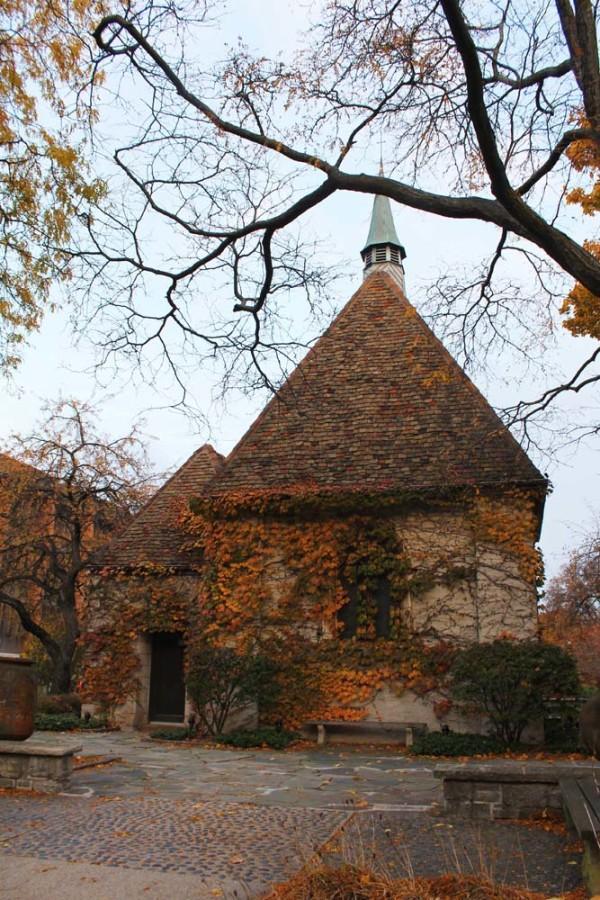

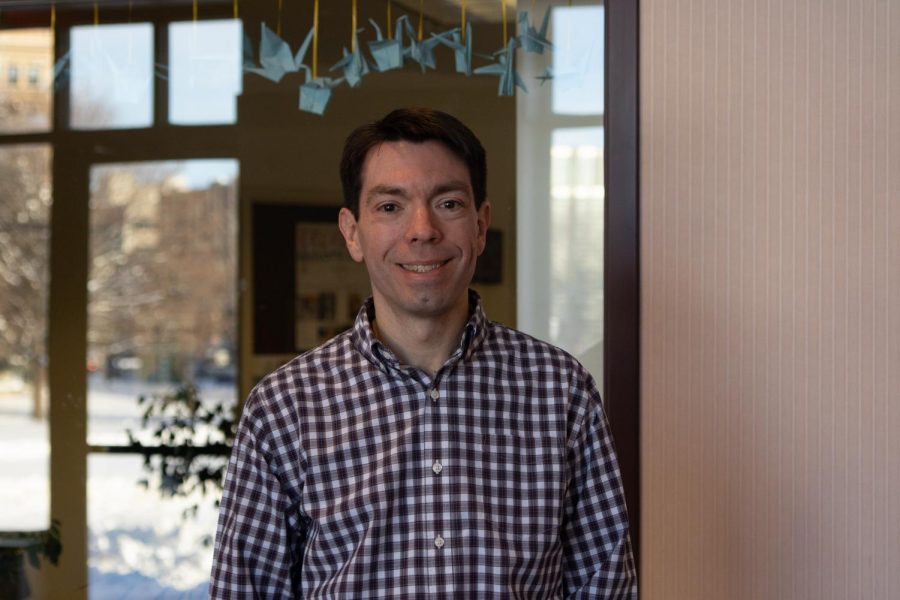
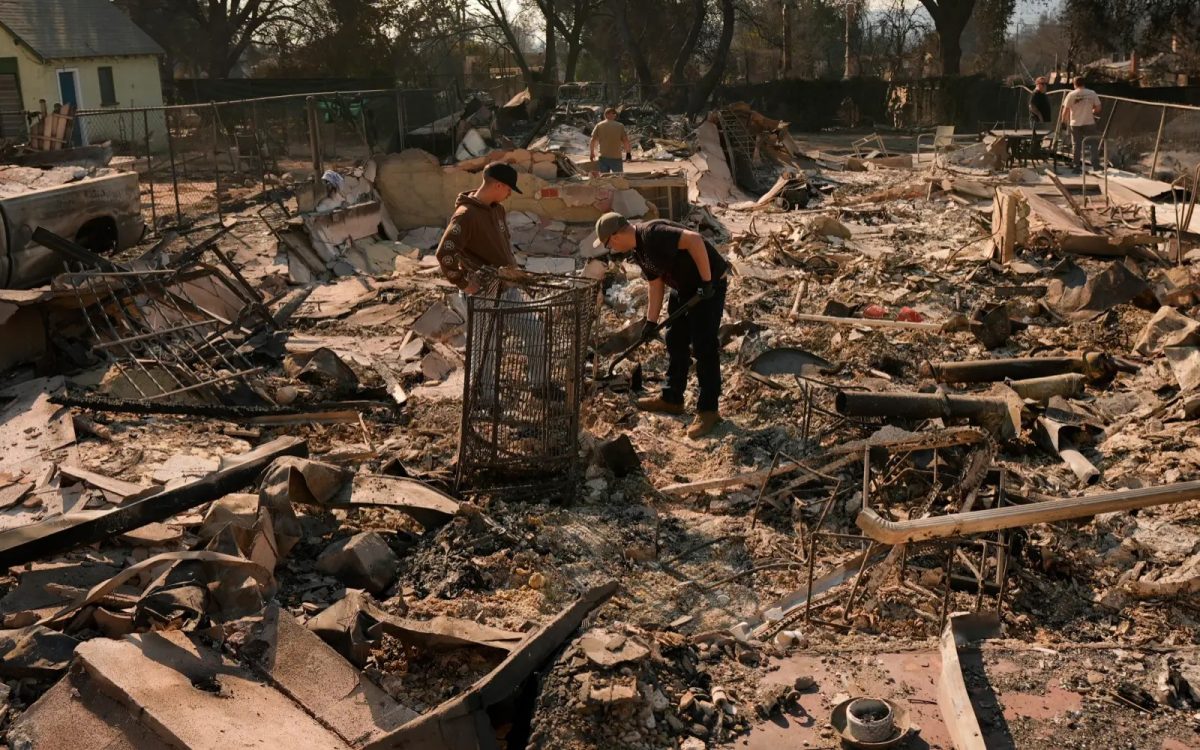
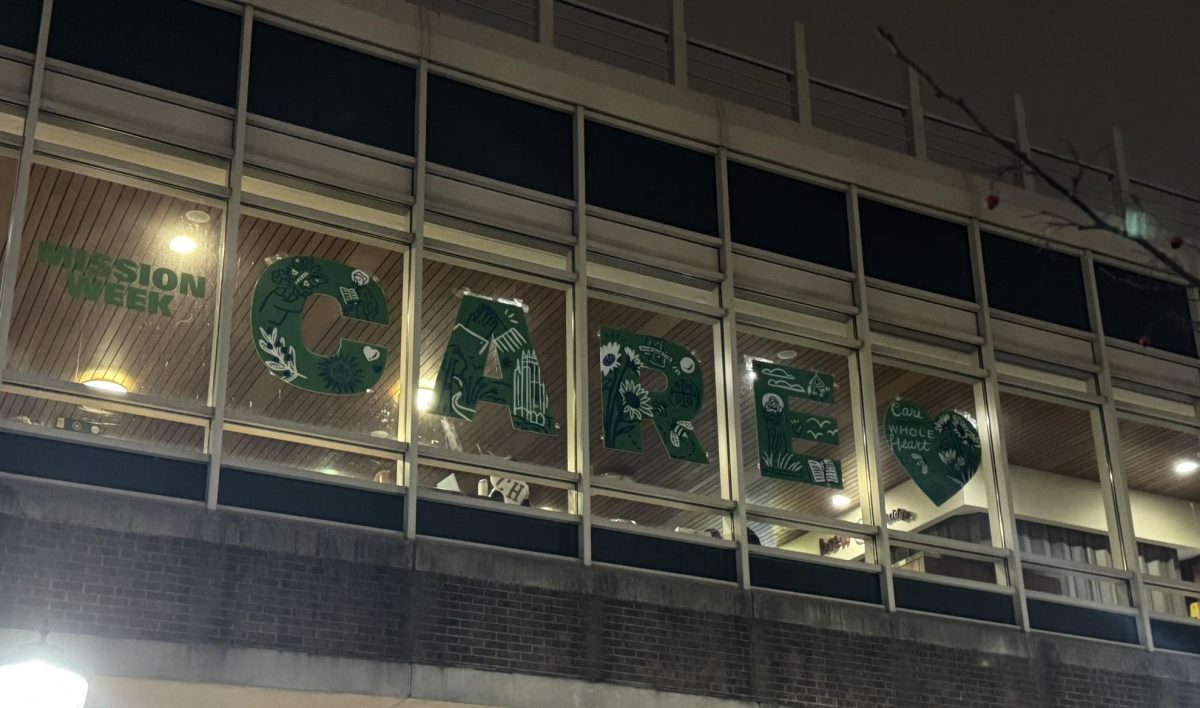
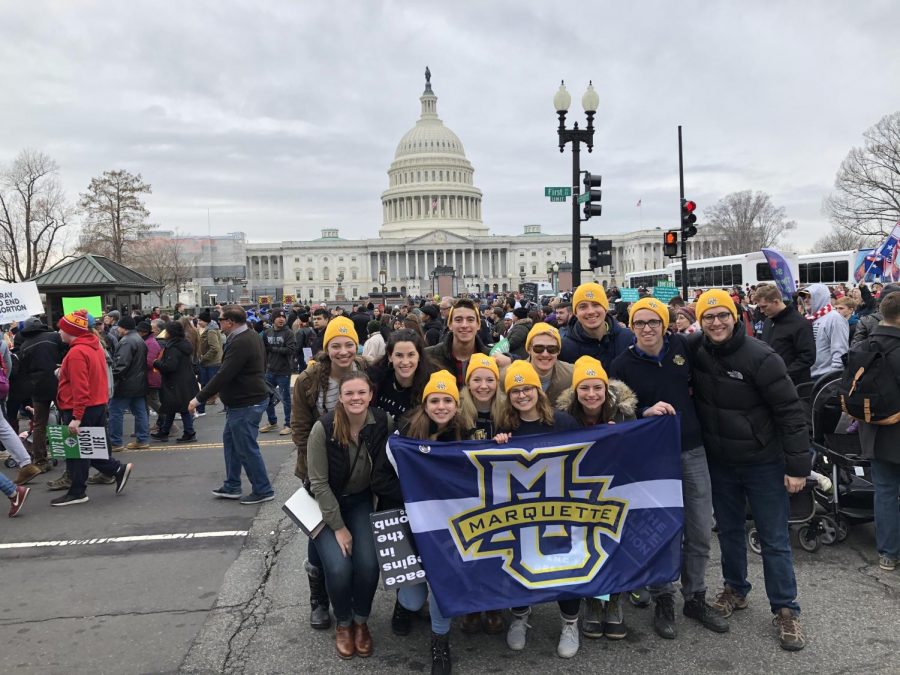
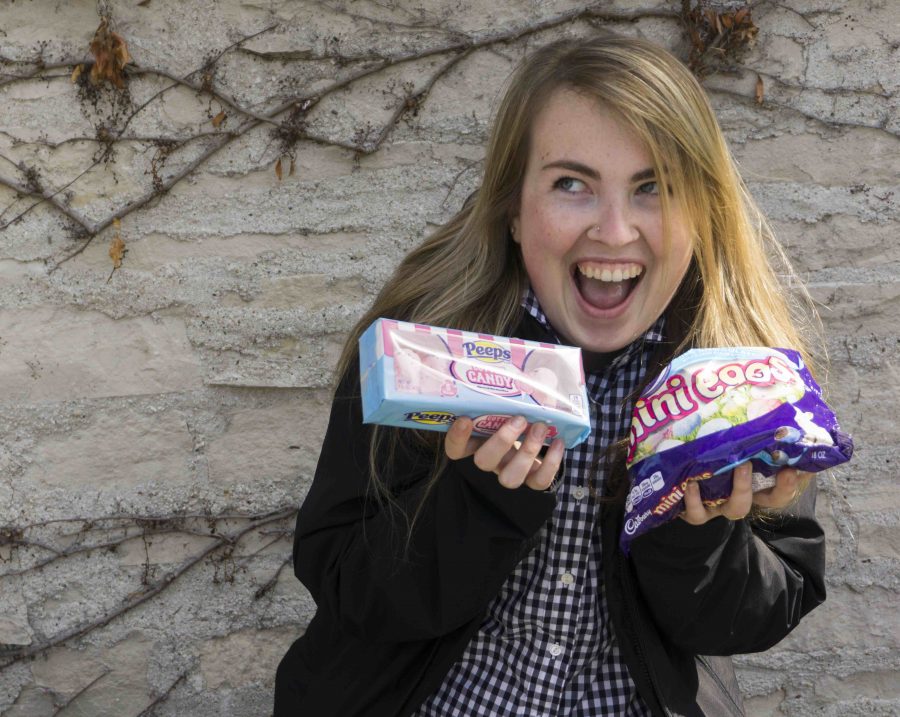
Brandon Meister • May 25, 2016 at 7:05 pm
As a gay MU 92′ Arts & Sciences graduate, who regularly attended Joan of Arc 10pm masses, this is and amazing and needed development. To build community, to invite isolated GLBT students into solidarity and worship truly fosters ‘cura personalis.’ Thank you.
Che Guevarra • Dec 10, 2014 at 10:00 pm
It is no secret Catholic teachings and doctrine have fallen to the wayside at Marquette. Marquette is Catholic in name with a small population of practicing Catholic students and staff. I agree that a university should be for a diverse population but why sell it as a wholesome Catholic brand of education when it is anything but? Institutions of higher education are money makers so they appeal themselves to a large audience and if that means joining forces to promote a homosexual agenda then little hesitation goes into keeping it from happening. I am not advocating any of the messages of the Westboro enthusiasts because they are on a far end of a theocracy spectrum which reminds me of a jihadist. One positive thing they are doing is holding the university accountable for their non-Catholic and non-Christian practices which is something seldom done by my other fellow students and/or staff. Why does Marquette have an ROTC program when Christian values proclaim nonviolence? The university is helping develop soldiers who invade other sovereign countries and work as killing machines. I hope these protestors will force MU to look in the mirror and recognize it’s new identity and not the one it promotes itself on antique paper.
Louis Joliet Society • Nov 11, 2014 at 2:35 pm
Mr. Blaha says, “Part of our lives as a church is to really be aware of where we’re at as far as if we’re feeling welcome around the table.” This is true. ANOTHER part of our lives as a church — many would argue, the more important part — is to examine why we don’t feel welcome around the table (if, in fact, we don’t) and discern why not. Is it, in this case, the bigotry of others or is it, perhaps, something about our lifestyles not aligning with the truth? We recommend an exercise called the Examination of Conscience. Without it, the first part—feeling welcome around the table—is meaningless.
The article concludes, “I’m really glad we’re doing this,” Blaha said. “I’d be worried about us as a Catholic university if we weren’t.” At a major Catholic university, the assistant director of Campus Ministry– the function of which is to facilitate the spiritual formation of students– would be worried about that Catholic university if it were obedient to Church teaching on a critical matter of morality? Anyone else worried? We are! Join us: https://www.facebook.com/pages/The-Louis-Joliet-Society/356212237862792?ref=br_rs
In the meantime, some questions for Mr. Blaha and Campus Ministry (which they have thus far neglected to answer):
1. With multiple Mass offerings at Marquette, why the need for Masses designated specifically for those distinguishing themselves by their association with sexual practices the Church has always held as immoral? In other words, you would not, we presume, specially designate Masses for say “Adulterers” or “Fornicators,” so why “LGBTQ”? We are all sinners, and Christ welcomes all sinners. He calls us not just to community, however, but to repentance.
2. Given the significant lack of understanding around the Church’s teaching on sexual morality–particularly among college students–will these Masses be used as opportunities to educate the congregation about these teachings?
3. Is there any communication/education regarding Church teaching about celebrating Mass and receiving Holy Communion in the state of grave sin? According to Canon Law: “A person who is conscious of grave sin is not to celebrate Mass or receive the body of the Lord without previous sacramental confession.”
4. Is reconciliation prior to each Mass provided or encouraged?
We should be less concerned with our brothers’ and sisters’ comfort, and more concerned with their salvation and our own.
Mike Merfeld (Arts & Sciences, '94) • May 25, 2016 at 9:15 pm
Doesn’t your contention that these students need reconciliation require you to assume they have done more than identify as gay – in case you have forgotten, even by your definition, BEING gay in and of itself is not sinful – require that you judge them and what you assume their behavior to be?
To one of your points of what “he” calls us to – Jesus doesn’t really call us to be judgmental “Let the one among you who is guiltless be the first to throw a stone…” That is a direct quote from Jesus referencing hypocrisy which is more than you can point as a directive from Jesus when speaking about being gay.
Thank you, Mr. Blaha for working to create a more welcoming environment for those LGBT students who wish to celebrate mass.